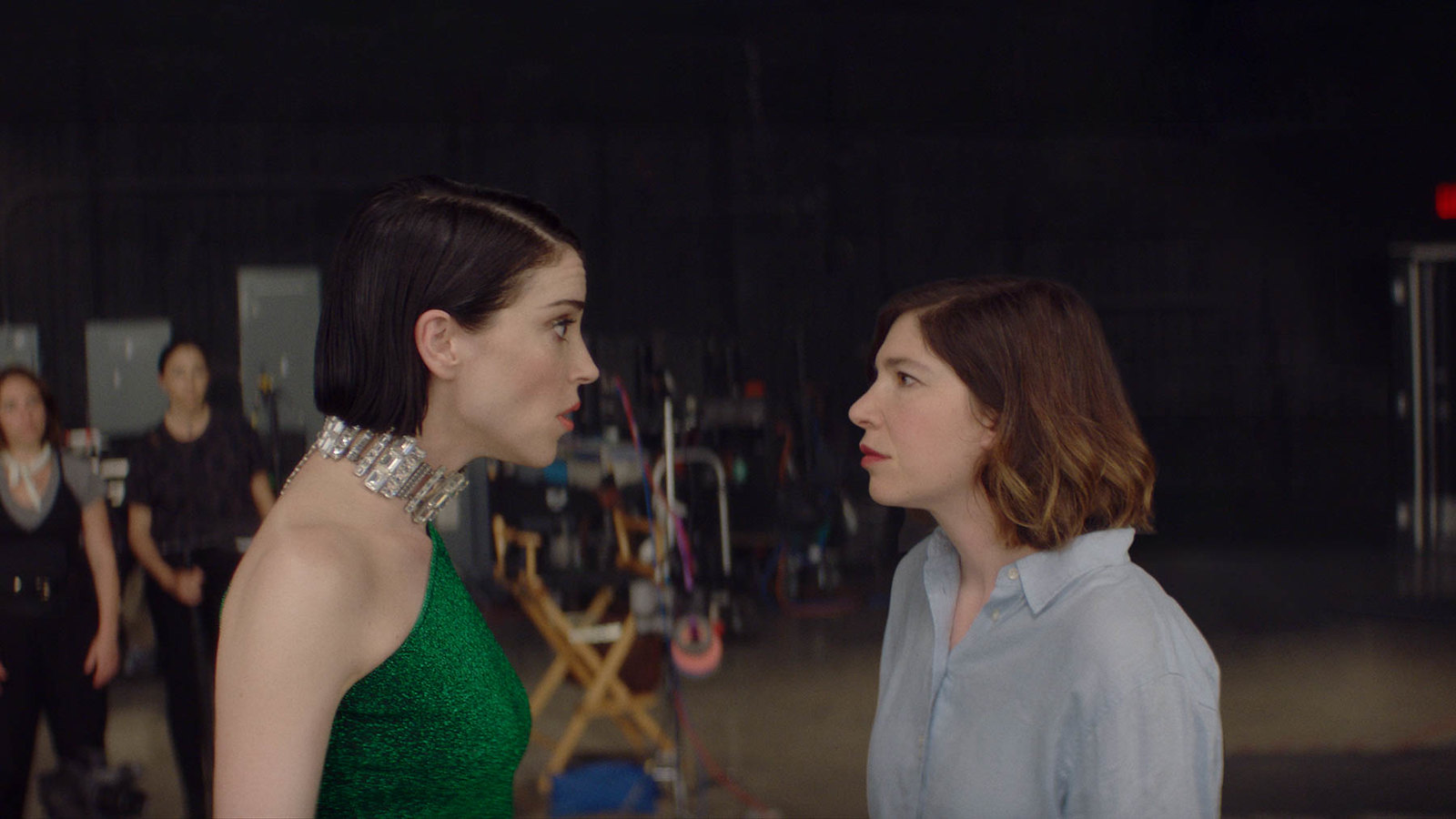‘The Nowhere Inn’: Film Review
By Amy Nicholson
LOS ANGELES (Variety.com) – Bill Benz’s high-concept rock mockumentary opens with a white limo speeding through the desert. The driver (Ezra Buzzington) has never heard of his passenger, the cult sensation Annie Clark, better known by her stage name St. Vincent. “I’m not for everybody,” she shrugs. The driver is unsatisfied. “Don’t worry,” he glowers. “We’ll find out who you are.”
That threat hangs over Clark’s black-bobbed head for the rest of the film’s running time. Clark hires friend Carrie Brownstein, the Sleater-Kinney guitarist and “Portlandia” comedian (with whom Clark also wrote this script), to shoot a documentary of her Masseduction tour for “people to know who I really am.” The problem is Clark (at least, this fictionalized version of Clark) is a Scrabble-playing, radish-eating, people-pleasing dork. Fans love , a guitar-shredding Amazon in thigh-high neon boots with a voice that sounds piped in from a spaceship. St. Vincent commands attention. As for Clark, well, even her bandmates think she’s boring.
, whether they’re a rude chauffeur, a journalist’s cousin who wants a selfie or a sobbing fan who burdens Clark with sad stories about how her music saved her life. Brownstein empathizes with Clark’s predicament. As the film starts, a network has rejected her TV pilot, and the career bump has her paranoid that she, too, doesn’t measure up to her reputation. She, too, needs this documentary to work – she needs a compelling story – and the two women’s’ aligned insecurities put them at cross-purposes. To get great material, Brownstein chips away at Clark’s self-confidence until she grows sensitive about being less interesting than her second self. “I can be St. Vincent all the time,” Clark promises, and she soon awakens her inner monster: a 24/7 diva determined to shock and awe.
Clark and Brownstein’s creative collaboration stretches back a decade to the St. Vincent music video “Laughing With a Mouth of Blood,” filmed at “Portlandia’s” fictional bookstore Women and Women First. They not only co-wrote “The Nowhere Inn’s” script but also penned its theme song, a source of drama within the film. Yet their performing styles don’t mesh. In keeping with “Portlandia’s” comedy of awkwardness, Brownstein stammers and ums and smiles big phony smiles. Her humor is in the pauses.
Clark operates on a higher frequency. Her energy is contained, not diffuse. She moves with the precision of an assassin, and though she’s fantastically charming, Clark also has the ability to flatten her features into cold, android perfection. With her, every gesture is as sharp as a shiv. No matter how much Brownstein and Clark clearly enjoy and respect each other’s talents, combining the two in the same scene is like pouring chia pudding into a latex dress. When Clark insists on filming in her home state of Texas, she dominates the screen shooting pistols in fringed spandex. Brownstein can only stand on the margins and passively murmur that maybe, well, hmmm, she should be a little more realistic.
Benz’s direction is more tuned into Clark’s wavelength. He and cinematographer Minka Farthing-Kohl favor crisp images, witty pans and the occasional dramatic zoom. Benz and Farthing-Kohl refract St. Vincent’s concert guitar solos into psychedelia, creating small music videos within the movie as she rips through songs like “Fear the Future” and “Year of the Tiger.” the latter with a fake family of singers and musicians she fobs off as her own. In “The Nowhere Inn’s” funniest sequences, Clark orders Brownstein to film intimate moments with her girlfriend Dakota Johnson, played with gusto by Dakota Johnson, who’s willing to slip into strappy lingerie and a blunt wig that turns her into a St. Vincent clone.
As a ballad about a rock star’s soul, “The Nowhere Inn” is a fun riff performed on flimsy strings. Clark, who journalists consistently note is a deeply private artist, has succeeded in exposing everything and nothing. She’s content to playact as the film’s calculating villain, confident that viewers will know that, too, is a ruse. The film can feel so clever it gives you a headache, even before it plays itself off with a blast of David Lynchian reverb. Yet one senses there’s much more film work ahead for the mutable Miss Clark when she’s ready to set aside both of her identities to play wholly fictional characters. After all, she says, “I know who I am. What does it matter if anyone else does?”

